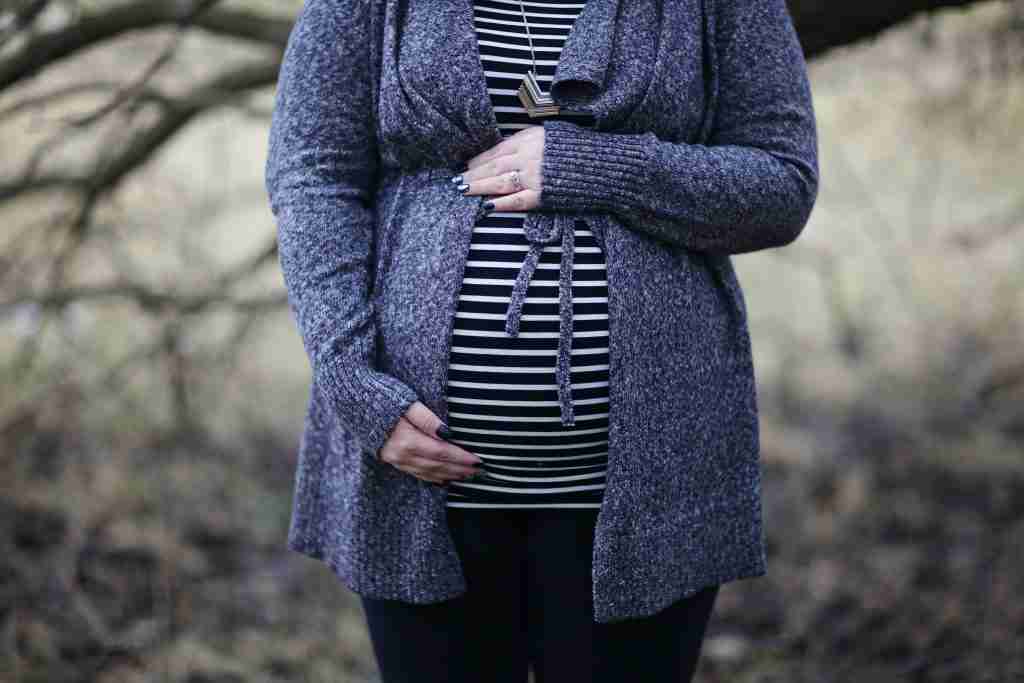
Coffee is one of the most popular beverages worldwide. At present, over 400 billion cups of coffee are consumed annually as part of a diet or drink. The drinking of coffee is also part of several cultures around the world.
An average coffee drinker consumes three and a half cups each day. If coffee is so popular, why are there contentions about it being safe for pregnant women? The thing is coffee is one of the most common sources of high caffeine intake.
There are conflicting studies on caffeine and its relationship with miscarriages. One study found that women who consume up to 200mg or more of caffeine daily are twice as likely to have a miscarriage as those who do not consume any caffeine.
Yet another study revealed that there was no increased risk in women who drank a token amount of coffee every day (around 200-350mg, daily).
Things You Should Know About Caffeine
- It is a stimulant and a diuretic. As a stimulant, caffeine increases blood pressure and heart rate. Both conditions are best avoided during pregnancy. Caffeine also causes a reduction of fluids in the body by increasing the frequency of urination
- It affects your baby. When you take caffeine, some of it crosses through the placenta to the baby. While your body can handle the amount of caffeine you feed your body, it will affect your baby’s metabolism.
Why Drinking Coffee is Bad During Pregnancy
Pregnant women do not process caffeine quickly throughout their pregnancy. Studies show that it takes twice as long to process the same amount of caffeine in the third trimester than in the first trimester. What is the implication for the baby?
Well, caffeine, consumed by the mother, passes through the placenta and into the fetus’s bloodstream. The fetus has a reduced ability to process caffeine because it lacks the main liver enzyme used to do so.
When you take caffeine while pregnant, it will change your baby’s sleep pattern or its movement pattern in the later stages of pregnancy. Research also shows that caffeine can be a stressor in pregnancy. Babies with stress in the uterus are more likely to have health challenges as children and adults.
Many experts believe that consuming more than 200 milligrams of caffeine per day slightly increases the risk of miscarriage. It is also thought that consuming large amounts of caffeine or caffeinated beverages can hamper the growth of developing fetuses.
Results from other studies submit that excessive consumption of caffeine may be associated with reduced birth weight and preterm birth or stillbirth. According to the WHO:
“For pregnant women with high daily caffeine intake (more than 300 mg per day), lowering daily caffeine intake during pregnancy is recommended to reduce the risk of pregnancy loss and low birth weight neonates“.
Risks of Drinking Coffee While Pregnant

What all this means is that pregnant women who regularly have more than 200mg of caffeine daily have a higher risk of having a baby with low birth weight. Such babies are at increased risk of health problems later in life.
If you find that you can’t do without consuming coffee daily, then you might want to limit it to one 12-ounce cup of coffee or two 6-ounce cups of coffee a day, or it’s equivalent in tea or chocolate or less.
So to answer the question is drinking coffee safe during pregnancy? The answer is yes. On the condition that you consume your coffee moderately. What coffee drinkers consider to be moderate depends on the drinker. The average daily consumption of coffee can be anything between 150 mg – 300 mg a day.
However, it is advisable to take the WHO advice on coffee consumption on the safe side. Consuming more than that amount can put your child at risk.
You should note that the amount of caffeine in your coffee cup will vary depending on the type of coffee and how it’s brewed. Your average commercial coffee will range from about 100 mg for a small cup to over 400 mg for a large cup.
You should also know that the decaffeinated tag doesn’t mean caffeine-free. A 16-ounce cup of brewed decaffeinated coffee contains about 12 to 25 mg of caffeine on average. You might want to remember that.
Pregnant women should avoid caffeine consumption as much as they can. At least for the baby’s sake. Bear in mind that coffee is not the only source of caffeine. Teas (including green tea), cola, energy drinks, and chocolate all contain caffeine.
The amount of caffeine in coffee, coffee-flavored yogurt and ice cream, energy drinks, soda, and teas may vary, but you can always confirm it from the internet.
What About Decaf Coffee?
One of the ways people cut back on their coffee intake is to substitute it with decaffeinated (decaf) coffee. Decaf coffee may seem like a great alternative, but it still contains small amounts of caffeine. A cup of decaf has between 2 and 12 milligrams of caffeine.
This is why people who like the taste of caffeine and cannot do without that caffeine buzz opt for decaf coffee. The idea is that you can take lots more decaf coffee before you hit the 200-milligram limit.
Well, there is more to the consumption of caffeine. Some researchers found that some decaf coffee brands contain a chemical known as methylene chloride (also known as dichloromethane or DCM).
DCM is a solvent that can be found in products like paint strippers, adhesives, and automotive cleaning products. It’s is present in decaf coffee because it is used during the decaffeination process for coffee.
Methylene chloride is harmful to humans, especially pregnant women. It has been linked to cancer, cognitive impairment, and asphyxiation and is also associated with liver, kidney, and reproductive toxicity.
Pregnant women may want to avoid consuming decaf coffee products, so they don’t introduce toxic chemicals to their babies. If they take decaf coffee, they must be sure that it does not contain methylene chloride.
When You Have To Reduce Coffee Intake

Some people experience rebound headaches when they go cold turkey on caffeine, so cutting back slowly is better than going cold turkey, especially when there the risks of serious complications are significantly reduced.
You might want to try using a smaller cup, diluting your coffee with milk or cream, or start drinking tea, which has some caffeine but much less than coffee. If you are a six- or eight-cup of a coffee person, you could consider cutting down to five or fewer cups. You might aim for about two to three cups a day.
Going from six cups to zero in a day will shock your system and leave you tired and irritable, and you do not need to add them to the stress of carrying a baby. Start by cutting down one cup a day until you’re at the two-small-cups-a-day mark.
Some people take it slowly by substituting decaf (DCM-free, of course) for half of each and then slowly weaning themselves off from both the taste and the kick of the real stuff by reducing the amount of regular and increasing the amount of decaf. Another way to lower the consumption of caffeine is to make your latte yourself.
You limit the quantity of coffee to half a cup and fill the cup to the brim with hot milk. From the milk in a latte, you’ll get a little extra calcium and protein.
Try other sources for your “kick”. Try switching beverages. You might want to try a quality decaf brew and enjoy the flavor without the caffeine. Try sparkling water, sparkling juices, or sparkling caffeine-free soda (you want to take the drink in moderation if they’re artificially sweetened). Try getting healthier energy boosts from a snack of complex carbohydrates and proteins, exercising regularly, and getting enough sleep.
Eating smaller, more frequent meals and snacks, when you’re decaffeinating your system, will keep your energy up by keeping your blood sugar from dipping.
You might want to add prenatal vitamins to the mix. They will help you maintain your stamina without caffeine.
You want to be extra careful when going out for coffee because your favorite coffee shop is likely to serve a much more potent brew than what you make at home.
This is because the caffeine content of espressos and coffees based on espressos (cappuccinos, flat whites, and lattes)depends on the outlet.
Another way is to switch from filter coffee to instant coffee as it’s slightly lower in caffeine. You could also make it weaker by using only half a teaspoon of coffee per mug.
If you’re interested in learning how to brew healthier coffee learn how you can lower your cholesterol by doing this trick. Our article about healthy coffee will teach you everything you need to know!
Takeaway
Many women have gotten used to making coffee an integral part of their lives, carrying on the habit of drinking coffee while pregnant.
As of the time of writing this article, there was no hard evidence as to the negative effect of coffee intake on pregnancy. However, WHOs advice on coffee consumption is an excellent place to start. So make of that what you will.
Read more about caffeine during pregnancy from the American Pregnancy Association to learn more.

